 How would you define minimalism? I asked this question at the beginning of a presentation I gave recently at Brown University in Providence, RI. The answers I received were varied, but most of them included the concepts of intentionally having less stuff, and living a meaningful life with less material possessions. This was consistent with what I found while doing research for this presentation, and reading how established minimalists defined minimalism. I found three definitions that I could easily relate to, one by Joshua Becker, one by Joshua Fields Millburn & Ryan Nicodemus, and one by Miss Minimalist, Francine Jay.
How would you define minimalism? I asked this question at the beginning of a presentation I gave recently at Brown University in Providence, RI. The answers I received were varied, but most of them included the concepts of intentionally having less stuff, and living a meaningful life with less material possessions. This was consistent with what I found while doing research for this presentation, and reading how established minimalists defined minimalism. I found three definitions that I could easily relate to, one by Joshua Becker, one by Joshua Fields Millburn & Ryan Nicodemus, and one by Miss Minimalist, Francine Jay.
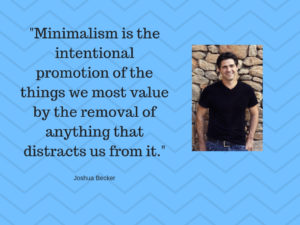
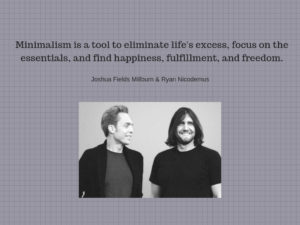
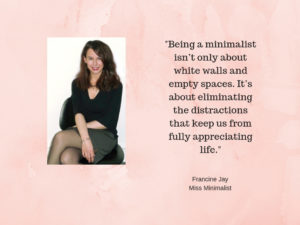
After reading these definitions I was inspired to come up with my own personal definition of minimalism. This is what I came up with:
Minimalism is a lifestyle choice in which we focus on:
…minimizing consumption by shopping less, buying less, using less.
…embracing limits through reducing, reusing, recycling.
…protecting our environment and natural resources with voluntary simplicity.
…finding greater pursuits in life than material possessions.
This definition became the outline for my presentation on embracing minimalism. It also inspired me to adopt a more of a minimalist lifestyle. I’ll be sharing my ideas, tips, and experiences on aspiring to be a minimalist in future blog articles. I hope you stay tuned and get inspired as well. If you’re interested in having me share my presentation on embracing minimalism, please contact me.
Below are some resources on minimalism that I’d like to share. I hope they encourage you to make changes in your life, like they have encouraged me.
- Joshua Becker’s website, books, and blog
- Joshua Fields Millburn’s & Ryan Nicodemus’ website, books, and blog
- Francine Jay’s website, books, and blog
- Courtney Carver’s website, books, and blog
- Patrick Rhone’s website, books, and blog
- The Life Changing Magic of Tidying Up by Marie Kondo
- Becoming a Minimalist: Your Guide to Living a Great Life With Less Through Minimalism by Kimberly Wilson
- Minimalism: How Living on Less Means Living More Life by Addison Fenn
- The Simple Guide to a Minimalist Life by Leo Bubauta
- You Can Buy Happiness (and It’s Cheap): How One Woman Radically Simplified Her Life and How You Can Too by Tammy Strobel
©October 2018 Janine Cavanaugh, Certified Professional Organizer All Rights Reserved
 The rate of what comes in needs to be less than or equal to the rate of what goes out. It is easy to bring things into our lives and spaces, but it requires more effort to remove things. Therefore we need to consistently and continually work to remove things from our lives and space. By consciously working at it we increase our chances of being able to manage what we own and keep it organized.
The rate of what comes in needs to be less than or equal to the rate of what goes out. It is easy to bring things into our lives and spaces, but it requires more effort to remove things. Therefore we need to consistently and continually work to remove things from our lives and space. By consciously working at it we increase our chances of being able to manage what we own and keep it organized.
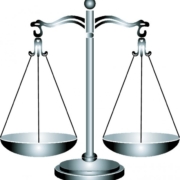


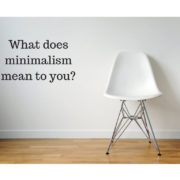
 How would you define minimalism? I asked this question at the beginning of a presentation I gave recently at Brown University in Providence, RI. The answers I received were varied, but most of them included the concepts of intentionally having less stuff, and living a meaningful life with less material possessions. This was consistent with what I found while doing research for this presentation, and reading how established minimalists defined minimalism. I found three definitions that I could easily relate to, one by
How would you define minimalism? I asked this question at the beginning of a presentation I gave recently at Brown University in Providence, RI. The answers I received were varied, but most of them included the concepts of intentionally having less stuff, and living a meaningful life with less material possessions. This was consistent with what I found while doing research for this presentation, and reading how established minimalists defined minimalism. I found three definitions that I could easily relate to, one by 




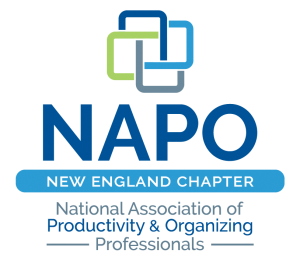
Follow Me